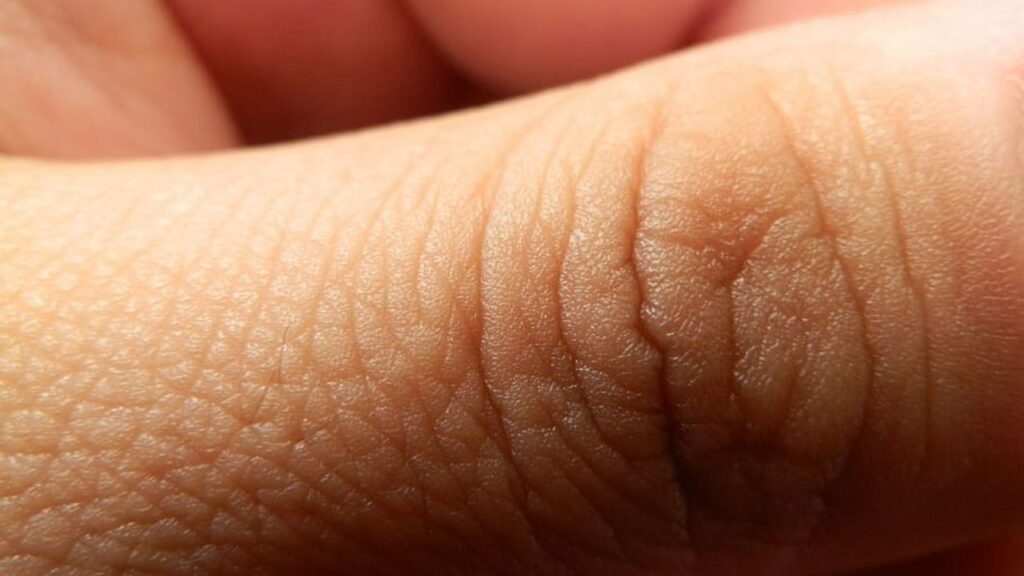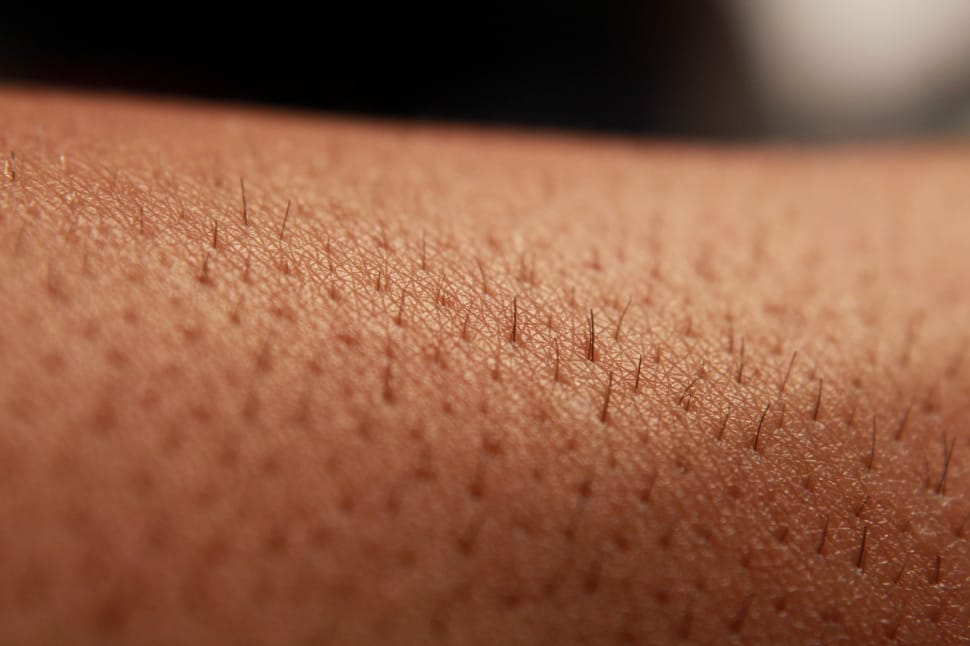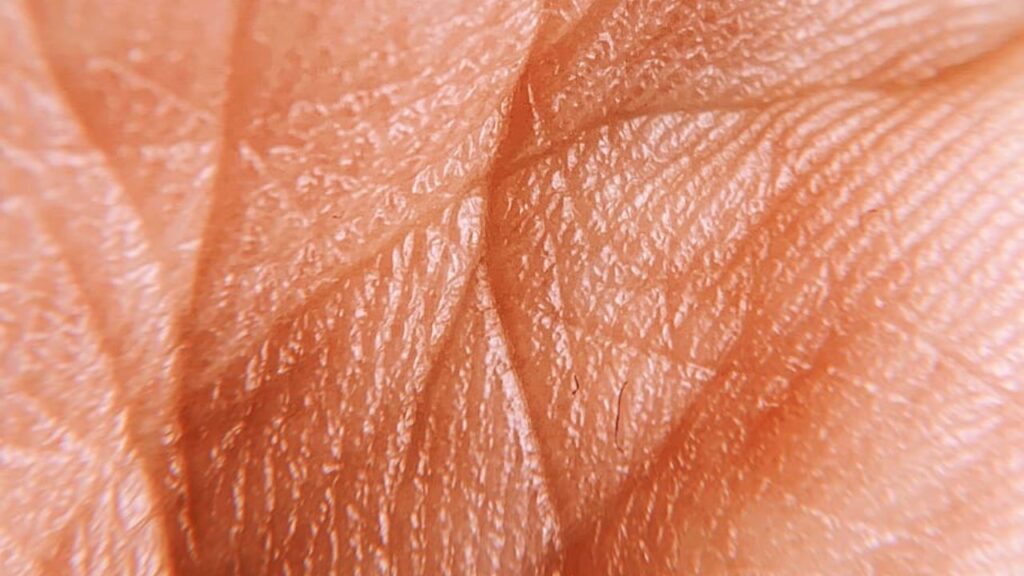
Can A Person Live Without Skin? No, a person cannot live without skin as it provides essential protection and regulates temperature and fluid balance.
Are you seeking insight into the significance of the skin, the body’s largest organ? It acts as a protective shield against external threats and is vital for various physiological functions.
Delving deeper, we explore the intriguing question: Can a person survive without skin?
Table of Contents
The Importance of Skin
Skin serves multiple vital functions essential for human survival:
Protection
The skin’s outermost layer, the epidermis, serves as a strong barrier that protects the body from a wide range of outside dangers.
Pathogens are continuously attacking our skin, including bacteria, viruses, and fungi. [Can A Person Live Without Skin?]
Because of its closely packed cells and ability to withstand water, the epidermis keeps these pathogens from entering the body deeper, lowering the chance of infection.
The skin also acts as a barrier against the sun’s damaging UV rays, which can damage DNA and raise the risk of skin cancer.
The skin also repels chemicals and physical traumas, protecting the underlying tissues and organs from damage.
Regulation
The skin is essential for keeping the body’s interior temperature within a specific range that promotes the best possible physiological function.
The skin helps disperse excess heat produced during physical exercise or exposure to high temperatures through a process known as thermoregulation, which involves dilating blood vessels near the skin’s surface and starting the production of perspiration.
On the other hand, the skin narrows blood vessels in cold climates to retain heat and limit heat loss. [Can A Person Live Without Skin?]
By preventing overheating or hypothermia, this dynamic regulation of body temperature serves to preserve homeostasis.
See Also: Is Zinc Good For Sagging Skin? Exploring the Connection
Sensation
Our ability to perceive and interact with the environment is made possible by the abundance of sensory receptors found on the skin.
Touch, pressure, pain, and temperature are just a few of the sensations that are detected by the skin’s specialized nerve endings.
These feelings give us vital information about our surroundings, allowing us to move around and engage with things in a safe manner.
Pain, for instance, warns us of impending harm, while touch enhances our capacity to manage objects and interact with people by allowing us to recognize textures and shapes.

Immunity
The skin is the body’s first line of defense against invasive pathogens and is an essential part of the immune system.
Specialized immune cells that patrol the skin, like T lymphocytes and Langerhans cells, are prepared to neutralize and intercept any foreign invaders that manage to get past their defenses.
Apart from averting infections, the skin is essential for wound healing and tissue restoration. [Can A Person Live Without Skin?]
In order to ensure that wounds heal quickly and reduce the chance of problems, the skin releases growth factors and immune cells that coordinate the intricate process of tissue regeneration.
Synthesis
The ability of the skin to produce vitamin D when exposed to sunshine is one of its lesser-known uses.
The sun’s UV rays encourage the skin’s precursor molecules to transform into active vitamin D, which is essential for bone health and calcium absorption.
In addition to improving general health, vitamin D also regulates the immune system, lowering the risk of autoimmune disorders.
As a result, moderate sun exposure is crucial for preserving enough vitamin D levels and boosting immune system performance.
The Consequences of Skin Loss
While advancements in medical science have made significant progress in treating severe skin injuries, complete loss of skin remains a life-threatening condition.
Without skin, individuals would face numerous challenges and health complications:
Increased risk of infection
In order to keep viruses from infiltrating the body and causing illnesses, the skin serves as a vital barrier.
People are far more vulnerable to bacterial, viral, and fungal diseases when they lack this barrier of defense. [Can A Person Live Without Skin?]
The body’s tissues are readily penetrated by pathogens, which can result in systemic consequences like sepsis, which can be fatal if neglected.
Temperature and fluid regulation
Skin is essential for preserving body temperature and fluid balance. These vital processes are upset when skin is lost, which impairs temperature regulation and causes fluid loss through evaporation.
People are susceptible to dehydration and overheating when they are unable to sweat and release heat, which can lead to heatstroke or heat exhaustion, particularly in hot weather or when physically exerting oneself.

Sensory deprivation
The skin is rich in sensory receptors that enable the perception of touch, pain, pressure, and temperature. [Can A Person Live Without Skin?]
Without these sensations, individuals lose vital feedback about their environment, compromising their ability to navigate safely and interact with objects.
Sensory deprivation can lead to accidents and injuries, as individuals may not be able to detect potentially harmful stimuli such as sharp objects or extreme temperatures.
See Also: What Color Is Dead Skin? The Palette of Dead Skin
Impaired immunity
The skin is the body’s first line of defense against pathogens because it contains immune cells that aid in the identification and elimination of invasive microbes.
Without skin, the immune system is significantly weakened, making a person more susceptible to infections and less able to build a defense.
Pathogens can readily penetrate the body’s defenses without the skin’s protective barrier, which can result in serious infections and perhaps fatal consequences.
Psychological impact
Adapting to the physical deformity and functional restrictions brought on by skin loss can have a significant psychological impact on people.
Visible skin loss can lead to sadness, worry, and depression, which can negatively impact one’s quality of life and mental health.
People may experience difficulty with their sense of self-worth, social isolation, and day-to-day functioning. [Can A Person Live Without Skin?]
Furthermore, the difficulties in controlling skin loss—such as wound care and rehabilitation—may make psychological distress and emotional strain even worse.
Medical Interventions
In cases of extensive skin loss, medical interventions are necessary to preserve life and restore function:
Skin grafting
A frequent surgical technique for treating extensive skin loss is skin grafting. In this process, either healthy skin from a deceased donor (allograft) or from a donor site on the patient’s own body (autograft) is removed and transplanted onto the injured area.
Grafted skin covers exposed tissue, speeds up the healing process and lowers the chance of infection.
When possible, autografts are recommended since they reduce the possibility of rejection and offer the greatest results in terms of appearance and functionality.
However, allografts or synthetic skin substitutes may be utilized temporarily until autografts become available in cases of significant skin loss where donor locations are limited.

Tissue engineering
Through tissue engineering techniques, advances in regenerative medicine have transformed the treatment of significant skin loss.
The structure and functionality of bioengineered skin substitutes, which are made of scaffolds made of biomaterial and living cells, resemble those of real skin and aid in tissue regeneration and wound healing.
These skin substitutes are made to blend in perfectly with the surrounding tissues and can be made from the patient’s own cells (autologous) or from donor cells (allogeneic).
Compared to conventional skin grafts, tissue-engineered skin substitutes provide a number of benefits, such as a lower chance of rejection, quicker healing times, and better esthetic results.
Innovative strategies to improve the efficacy and accessibility of bioengineered skin substitutes for patients with significant skin loss are still being investigated in this field of study.
Supportive care
Patients with significant skin loss need thorough supportive care in addition to surgical procedures in order to maximize recovery and minimize complications.
To decrease the danger of infection, encourage tissue regeneration, and keep the afflicted region clean, meticulous wound care is necessary.
Regular cleaning, the debridement of dead tissue, and the administration of topical drugs or dressings could all be part of this.
To address bacterial or fungal infections, infection management procedures including antibiotic medication or antiseptic solutions could be required.
In order to guarantee sufficient intake of nutrients necessary for tissue repair and wound healing, nutritional support is also required.
To satisfy their higher metabolic demands and facilitate the best possible recovery, patients may need to use enteral feeding, specialized diets, or nutritional supplements.
Frequently Asked Questions (FAQs)
Can Skin Grow Back After Severe Damage Or Injury?
Yes, skin can regenerate, but it depends on the severity of the damage. In cases of extensive loss, medical interventions like skin grafting may be needed for healing.
How Can I Protect My Skin From UV Radiation Damage?
Protect your skin by wearing sunscreen, seeking shade, and wearing protective clothing. Avoid indoor tanning, as it increases the risk of skin cancer. [Can A Person Live Without Skin?]
What Are Common Skin Conditions And How Are They Treated?
Common skin conditions include acne, eczema, and psoriasis. Treatment options vary and may include topical or oral medications, phototherapy, or lifestyle changes.
Conclusion: Can A Person Live Without Skin?
So, to wrap it up, the importance of skin in human survival cannot be overstated. While medical advances can help deal with some effects of skin loss, living without it just isn’t feasible.
Recognizing how crucial skin is highlights the ongoing need for research and innovation to tackle skin-related issues and enhance patient care.

Hi Neat post Theres an issue together with your web site in internet explorer may test this IE still is the marketplace chief and a good component of people will pass over your fantastic writing due to this problem
certainly like your website but you need to take a look at the spelling on quite a few of your posts Many of them are rife with spelling problems and I find it very troublesome to inform the reality nevertheless I will definitely come back again
Your writing style is engaging.
Fantastic site A lot of helpful info here Im sending it to some buddies ans additionally sharing in delicious And naturally thanks on your sweat
childrens sex tthighereduhryyy.fW0Gyj6hP3v
upysm.com 是一個專業的社交媒體推廣平台,提供各種刷粉絲服務,讓您的Instagram、Facebook、Youtube等帳號快速增加人氣和影響力。無論您是個人創作者還是企業品牌,我們都可以為您量身定制最合適的方案,讓您在社交媒體上脫穎而出。
This article is a treasure trove of information.